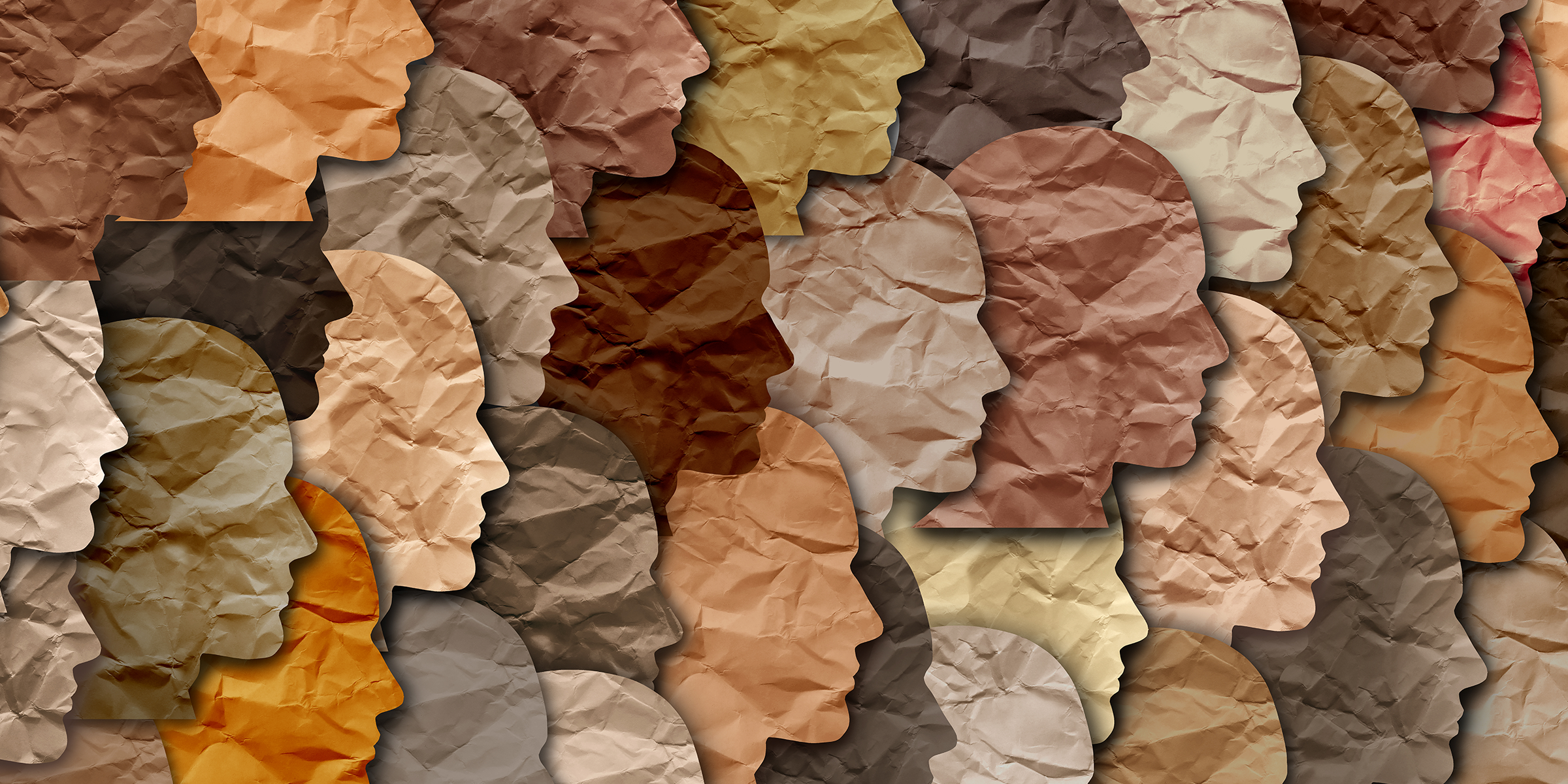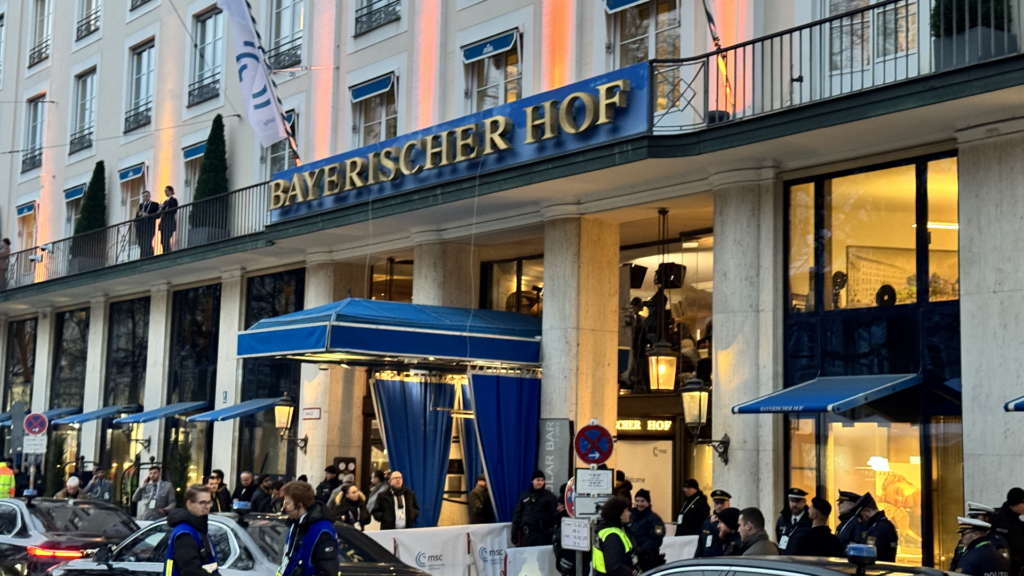As the Vice President of Organizational Engagement and Internal Communications at Dataminr, I take pride in our community, as well as our commitment to creating a stronger inclusive company culture.
To commemorate this year’s Black History Month, I had the pleasure to speak with five members of the Black@Dataminr employee resource group (ERG) to explore this year’s theme of Art as a Platform for Social Justice. We discussed their favorite Black heroes, key aspects of Black culture and more.
Check out what they had to say.
Who is your favorite Black hero and why?
What I love about the answers below is how they reflect the diversity of the Black community and contributions across the 19th, 20th and 21st centuries—from a pioneer in long-distance running to the first Black millionaire.
Le Andre Scott, VP of Talent Acquisition at Dataminr, had a clear favorite: Faith Ringgold. She is a renowned painter, writer, speaker, mixed media sculptor, and performance artist from Harlem, New York. Ringgold began making art in the 1960s. Her activism and art were fueled by the fact that Black women’s concerns were being ignored by groups like the Black Panthers and the women’s movement.”
“Her work and activism have inspired and influenced me over the years,” said Le Andre. “I have a painting from Ms. Ringgold on my wall. Its title is Church Picnic.”
Ed Oliver, VP of Customer Success at Dataminr, pointed to Ted Corbitt, famed long-distance runner and co-founder and first president of New York Road Runners—and the architect of the modern day New York City Marathon route.
“He was the creator of accurate road course measurement that helped legitimize the sport of running,” Ed said. “He was also the first African American to represent the U.S. in the Olympic marathon. I am inspired by Ted Corbitt and his work to bring the sport of running to a larger group of people and create space in the running world for the goal of civil rights.”
“There are so many remarkable Black people that inspire me. My modern day heroine is actor, writer and producer, Issa Rae,” said Camille West, Digital Performance Marketing Manager at Dataminr. “Issa is an ever-evolving talent who is a living case study in breaking barriers in media, marketing and the creative arts.”
Jill Beadle, Director of Content at Dataminr, found it hard to pick just one. “Since this year’s theme is art as a platform for social justice, I’ll call out a few of my favorite Black artists—those that have been fearless in telling authentic Black stories and challenging false narratives and oppression: Yasiin Bay; Nas; Zora Neal Hurston; Kwame Mbalia; James Baldwin; Toni Morrison; b. Robert Moore; Melvin Van Peeples; and John Singleton.”
And Tia Hinds, Senior Executive Assistant at Dataminr, chose the legendary Madam CJ Walker. “She is my favorite Black hero! In case you don’t know who she is, Madam CJ Walker is documented in the Guinness Book of World Records as the first self-made millionaire.”
Walker made her fortune by developing and marketing a line of cosmetics and hair care products made especially for Black women. “Her inventions paved the way for where we are today,” said Tia. ”As I am a woman who loves hair and cosmetics, she will always be my favorite Black heroine.”
What is one fact about Black History Month or Black culture that you want people to know about?
- Black history is U.S. history
- We are not a monolithic culture. The Black community has a wide diversity of backgrounds and origins all over the world.
- Black culture and its influence can be found everywhere, in direct and subtle ways.
- The GIF was invented by a Black computer scientist named Lisa Gelobeter, who also created products like Shockwave, Hulu and the ascent of online video. She also served as the Chief Digital Service Officer for the U.S. Department of Education and is the CEO and co-founder of tEQuitable.
Our discussion also revealed the desire for Black history to be part of our everyday lives and learning. “I hope that we can all celebrate this influence all the time and not just for one month,” Ed said.
What is one important news story or accomplishment about the Black community that you think everyone should know about?
Camille: “One of the noteworthy stories that stood out to me last year was the presence of 11 Africans named to TIME 100/AI—TIME magazine’s inaugural list of the most influential people in the development of AI technology.”
Tia: “A news story that I wish more people knew about, and is near and dear to my heart, is about Tiffany Capri Hainesworth—the first Black woman to solely own and create a tequila brand, TCapri Tequila. I have had the pleasure of tasting her tequila, and while I am not much of a drinker, it is very good.”
Jill: “One of my favorite, recent news stories is that of Chandler Hughes. A six-year-old Black boy who became one the youngest members of Mensa—the largest and oldest high-IQ society in the world. Our Black youth are doing amazing things, but there is little to no coverage of their newsworthy feats.”
Le Andre: “I’m not sure how new this information is, but many studies on the topic have confirmed that African populations have the highest levels of genetic and phenotypic diversity. The underrepresentation of African populations in genetic studies has limited mankind’s ability to research and understand fully the complexity of genetic traits and disease risk. Today, there are huge efforts to map out and gather samples of Black DNA to better understand human genetics and disease proliferation.”
How do you usually celebrate this month? What would you recommend allies do to support the Black community?
Different ways to celebrate
Not surprisingly, each of my colleagues celebrates Black History Month by attending related events, making a concerted effort to support Black-owned businesses and continuing to learn about Black history, contributions and accomplishments—not just that of the past, but that which is forming right before our eyes.
Some, like Jill, started new traditions coming out of the pandemic. She and her family and friends host a “for the culture” celebration, where they spend the day breaking bread, fellowshiping and playing games centered around Black history and culture. She said, “I always leave with a full spirit and heart.”
Tia said, “I usually celebrate this month like I do any other month. That means, I try to make sure my kids know about the people that came before them—all year round, not just one month out of the year.”
Le Andre takes advantage of the fact that the month overlaps with Restaurant Week in New York City and Jersey City, NJ. For him, it serves as a great way to support Black-owned restaurants and Black chefs. An art lover, he also makes sure to check out any nearby exhibits celebrating the occasion. Both are ideal activities given this year’s art as a platform for social justice theme.
What can allies do?
Allyship is critical for any underrepresented group, but it can be difficult for allies to know what to do and how to do it. During our discussions, the following recommendations surfaced:
- Join a Black ERG at work or attend events hosted by the group. You don’t have to identify as Black to participate.
- Seek out opportunities to learn more. There are some great books, museum exhibits and cultural events to attend.
- Volunteer for initiatives that advance Black communities and support Black-owned businesses
- Speak out against racism and challenge biased behaviors
- Be receptive when Black colleagues or friends share their experiences
Here at Dataminr, all are welcome to join the Black@Dataminr ERG events and actively participate in critical conversations, such as our recent celebration of Dr. Martin Luther King, Jr.’s legacy. Facilitated by Therify, the goal was to provide attendees with a deeper understanding of why we celebrate MLK Day and how making time for celebration and joy can be a powerful and revolutionary tool in the fight for racial equality.
What is the ERG doing this year to celebrate Black History Month?
In celebration of Black History month, Black@Dataminr will host a fireside chat with acclaimed artist Stephen Miller, showcasing his art, work, background, and passion for capturing Black essence and Black culture as a freelance photographer who specializes in portrait and unit photography.
Throughout the month and year, we’ll continue to explore and increase awareness of the role that Black art plays in uplifting Black culture, advocating for social justice and opening doors for the next generation.



